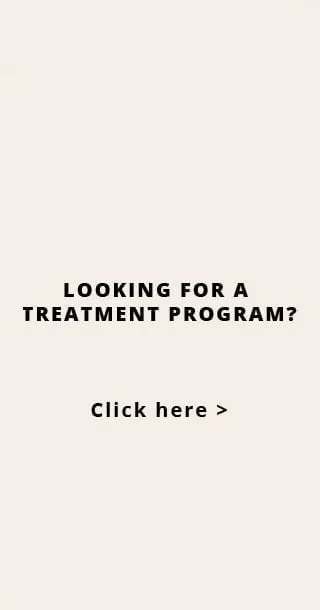Estimated reading time: 8 minute(s)
Alcohol is a commonly used yet one of the most damaging beverages out there. While it can harm anyone negatively, certain groups, such as breastfeeding mothers, are at a higher risk of damage. These mothers often get conflicting advice about whether consuming alcohol can negatively impact their babies, leaving them with more questions than answers. While the instructions about drinking during pregnancy are pretty clear and straightforward due to its negative effects on the unborn baby, these guidelines are not as well-defined regarding breastfeeding.
In general, drinking during breastfeeding is not necessarily against the law, as many mothers have occasionally indulged in it in moderation while nursing their babies. The effects of this beverage on a breastfed child are directly proportional to the amount a mother consumes. Drinking in lower quantities while taking certain precautions has been proven safe for the baby on multiple occasions. However, many mothers may find themselves in situations where they wish to drink but have overwhelming concerns about their baby’s safety.
Drinking While Nursing: Risks to the Baby
Depending on the amount of alcohol a mother consumes and the timing of drinking, the following are some signs of alcohol in breastfed baby:
- Increased crying
- Sleep disturbances, such as shorter sleep periods, less total active sleep, and more frequent wakefulness during three hours following alcohol consumption
- Increased startling
- Increased arousal
- Decreased milk intake by the baby
- Impaired immune function
- Growth retardation
- Delay of motor development
- Reduction in the ability for abstract reasoning at school age (6-7 years)
- Potential impairment of cognitive development
Further research has revealed that drinking during lactation can lead to various side effects of varying intensities, ranging from mild to severe. This intensity varies depending on how much alcohol a person consumes and how quickly their body processes alcohol. As alcohol is soluble in fat and water, it quickly enters the bloodstream and human milk very easily. If a mother consumes a standard drink, up to 95% of its alcoholic content can pass on to breast milk.
Further investigations have shown that frequent consumption of alcohol by lactating mothers led to a decrease or delay in the motor development of infants. The more alcohol these mothers consumed, the lower their breastfed infants scored in motor development indices. This impairment is keeping in view the fact that newborns can only metabolize alcohol at a 25 to 50% rate as that of adults. Many studies performed on animal models have also indicated that alcohol can be toxic to the developing brains and can lead to significant damage if exposed during the time of rapid brain development, such as the first year after birth. The beverage can singlehandedly cause memory impairments and lead to inhibitory responses secondary to an infant’s alcohol consumption.
Does Alcohol Stimulate Milk Production?
A long-standing myth has led many mothers to believe that consuming alcohol or beer during breastfeeding can help with milk production. This claim is true to some extent, as a certain barley component found in beer can increase the production of prolactin, a hormone that triggers milk production in lactating mothers. However, a few studies investigating this link found an inversely proportional relationship between the two factors, stating that alcohol consumption decreased milk production. Experts also found that consuming any alcoholic drink inhibits the milk injection reflex, thereby reducing the milk intake by a baby.
Research has shown that nursing infants consume less milk during the 3-4-hour window following alcohol consumption by the mother. When a mother drinks alcohol, followed by breastfeeding their baby, they may not realize this decrease and continue to believe that their baby is nursing normally for a standard time. However, many experts conducting years of research on the subject found that these infants consume up to 20% less breastmilk than they normally would when mothers do not drink alcohol. Similar research also indicates that when mothers try pumping milk two hours after drinking, their milk production is significantly reduced.
According to the evidence so far, most experts agree that instead of increasing the milk supply, alcohol consumption by nursing mothers can cause their babies to get less milk than normal. The effect is due to the impact of alcohol on hormones called oxytocin and prolactin. By reducing the former and increasing the latter, alcohol negatively affects milk production and ejection reflex. Lower levels of oxytocin delay milk ejection, whereas a higher level of prolactin makes this delay longer. As a result, milk supply significantly drops.
Alcohol and Breastfeeding: Things to Consider
To understand the relationship between binge drinking and breastfeeding and the effects of this combination, consider the following factors:
Baby’s Age
Because the liver in newborns is immature, their bodies are likely to take up more intense effects due to a breastfeeding mother’s alcohol consumption. When they reach the age of 3 months, infants can start metabolizing alcohol at half the rate of an adult. An older baby can process it much more quickly than a younger one.
Mother’s Weight
A person’s size also determines how quickly they can metabolize alcohol. Generally, a heavier person does it much more rapidly than a lighter person.
Amount of Alcohol
The effects of a mother’s drinking on the baby are also based on the amount of alcohol she consumes.
Timing of Food Consumption
When a mother consumes food while drinking alcohol, it interferes with alcohol absorption in the bloodstream and into breast milk.
Breastfeeding and Occasional Drinking: Is it Possible?
Considering the effects of alcohol in breastmilk, women who plan to drink occasionally while breastfeeding must keep the following safety suggestions in mind:
- Be aware that a baby cannot metabolize alcohol as well as an adult; hence, try avoiding any alcohol intake until the baby is at least eight weeks old.
- Try to breastfeed the baby immediately before having a drink and try to pump and save some milk for the next time if possible.
- Wait for 2 hours after consuming a standard drink before you breastfeed the baby next.
- Keep a limit on your alcohol consumption to two glasses of wine or beer.
- Remember that the more alcohol you consume, the longer your body will take to clear it from the system.
- Drink juice while drinking as an attempt to reduce the overall alcohol consumption
- If your baby needs nursing before your two-hour window post-drinking is over, use the previously pumped milk to feed them.
- Consider eating food while drinking alcohol to stop its absorption in the bloodstream.
Drinking and Breastfeeding: Weighing the Risks and Benefits
Many breastfeeding mothers may find themselves in a situation where alcohol is offered, for example, going out with family, attending a wedding, etc. No matter the occasion, many mothers may have concerns about drinking and how it may affect their babies. In such circumstances, the wise option is to weigh the benefits of breastfeeding against the benefits of drinking and consider the following:
Plan Ahead
- If you choose to go ahead with drinking, plan it well to reduce the baby’s exposure to it as much as possible.
- Try pumping the breastmilk and discard it if your breasts become full while you are waiting for the alcohol to get out of the system.
Consider Alternatives
- If you plan to drink more than in moderation, ensure that there is an alternative caregiver to look after the baby.
- Consider sticking to non-alcoholic drinks.
- Talk to a trusted friend or family member regarding attending an event where you may be expected to engage in alcohol intake regarding the pros and cons of attending.
- Have a trusted person with you or accessible through phone as you attend an event involving alcohol.
- Wherever possible, ask others to help you take a break from parenting and focus on something you truly enjoy
FAQs
Will I have to pump and dump breastmilk after having an alcoholic drink?
As alcohol begins to leave the bloodstream, it also goes to the breastmilk without any trapping. Hence, pumping and dumping are unlikely to affect its levels in breast milk. However, doing so, along with other activities, such as drinking coffee and water and resting, can increase the rate of elimination.
How long does it take for alcohol to leave the system during breastfeeding?
Breastmilk has the highest levels of alcohol 30 to 60 minutes following an alcoholic drink. This rate will decline at the same rate as in the bloodstream. According to experts, it is best to avoid nursing the baby for up to three hours per drink following a drinking session to ensure that the alcohol content in breast milk is minimal.
What if I accidentally get drunk while I am nursing my baby?
If you develop alcohol intoxication, experts advise against breastfeeding until you regain complete sobriety, i.e., when alcohol completely leaves the system. Drinking to the point of intoxication has been shown to impact an infant’s sleep and can affect other aspects of their health at the same time.
Is there a way to stop alcohol from getting into breast milk?
If you consume a drink, alcohol will most definitely enter the breast milk. No remedy can stop this transportation from happening. Once it is in breastmilk, a standard alcoholic drink will take a few hours to clear from the system, during which nursing must be avoided.
How much alcohol passes into the breast milk?
The levels of alcohol in breast milk are the same as in the bloodstream. Any rise or fall in the latter leads to similar changes in the former. Therefore, to know how much alcohol is in your breastmilk, the best way is to measure its concentration in the blood.
How much alcohol in breast milk can cause side effects in the baby?
Studies suggest maternal blood alcohol levels should be around 300 mg/100ml before it can cause significant side effects in infants.
Can drinking while breastfeeding cause autism?
Many rumors are circulating among the masses regarding the role of alcohol in the development of autism. Many women are under the impression that if they drink alcohol while breastfeeding their babies, they put them at a higher risk of acquiring autism. Remember that studies so far have failed to find a valid link connecting the two factors. However, this does not negate the many other side effects alcohol can induce in infants exposed to it through breast milk.
How long after detox can I breastfeed?
There is no fixed answer to how long you may need to wait following a detox program to restart breastfeeding. Many conflicting opinions are available over the internet, some suggesting starting it immediately while others indicating that both processes can occur simultaneously. The best way is to talk to a detox expert or addiction specialist and discuss your personal circumstances to seek tailored advice.
How can I cut back on alcohol consumption during breastfeeding?
If you like to enjoy a drink now and then but have recently started breastfeeding, it is best to avoid any alcoholic beverage until the baby turns eight weeks at least. For this purpose, the following ideas may help:
- Set a budget to spend on alcohol before you go out to a place that involves drinking
- Go for a smaller drink or choose something with a lower alcoholic content
- Mix your drinks with mocktails or consider taking sips of water in between to cut down the overall alcohol consumption
- Put down your drinks between sips
Ask friends and family members to support you by not preparing you drinks or offering you one.
Declare certain days of the week as alcohol-free and try limiting your alcohol intake on the rest of the days.


